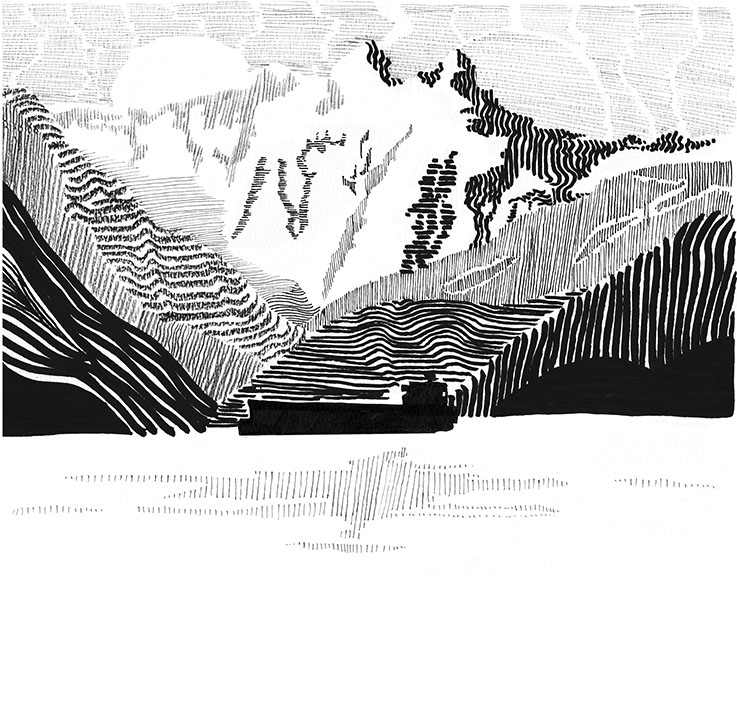While biking to meet Steve Frost and Soramaru Takayama, I waited at a stoplight on the corner of Main and Powell, shoulder to shoulder with a white man on a moped who had picked a shouting match with the Asian driver of a sedan stopped to his left. The pasty moped driver hurled a last comment at the sedan: “Go back to being a fucking Asian.” Most of the time it’s hard to react quickly enough in situations like this, and I likely would have spent the rest of the afternoon rephrasing the perfect response in my head had I not looked at the moped driver and told him that I wasn’t happy with his racist comment, and I was ready to fuck him up. In a line only to be expected from a moped bully, he turned to me and replied: “You want a piece of this too?”
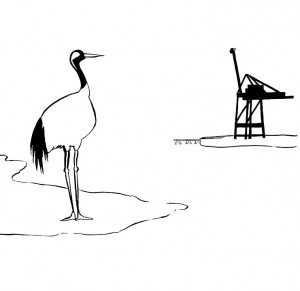
That might have been the end of it, but the light flashed green, and both the moped and me turned left onto Powell. We were about to hit another red light at the next intersection. Things were going to get hairy. But here’s the dilemma: I was on my way to interview Frost and Takayama about Japanese-Canadian poetry and the prospect of cross-cultural production as a way of addressing the history of internment. Was throwing down my bike and fighting some racist on the side of the road the best use of my time? Did I really have such grandiose notions of journalism as to think a brief article could be more effective in combatting racism? I slowly started to reduce the speed of my peddling. A few seconds before I reached the intersection, the light changed green and the moped sped off.
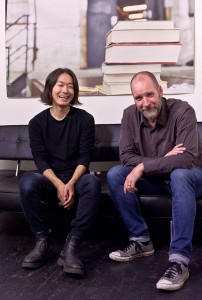
The history of Powell Street for Asian Canadians, particularly Japanese Canadians, cuts deep. As a site of culture, community, and colonial violence, it’s worth considering what solidarity and reconciliation would really look like from street-level. Frost and Takayama are both poets and members of Tasai, a multidisciplinary group that fosters Japanese and Canadian artistic collaboration. “This area has a freedom [to it]” says Takayama. Frost, who volunteers at the Vancouver Japanese Language School and Japanese Hall and Takayama, who owns a vegan pudding company a few blocks from Powell Street, translate poetry together as a pair. “He can’t quite do it on his own, I can’t quite do it on my own, but together we make one translator,” Frost explains. “Us translating together is also a picture of what collaboration is. You can’t just talk about it, you have to actually do it.”
Theories of translation have long understood translation as a generative practice — the creation of a new text, rather than pure replication. Frost and Takayama see it this way, but they look to translation as part of a political project as well. As a collaboration, the translation enacts cultural understanding. Translation not as a means to an ends but as an ends in itself. The performance of that creative activity is it’s own form of synthesis. Translation becomes a way of thinking about the kind of processes that are necessary for meaningful and lasting cultural production that goes beyond critique, call-outs and corrective curbside behaviour.
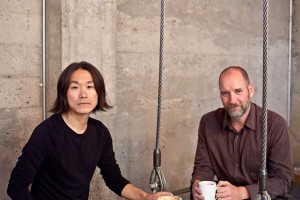
Frost and Takayama are also co-hosts of Tasai’s latest project, Japanese Poets North of the 49th (JPN49), which engages with a similar model of cultural cross-pollination. The overall JPN49 project brings poets to Canada. Within that a project is an event called Poems For Powell Street for these poets to write about buildings along the 200-400 block of Powell Street which were formerly owned by Japanese Canadians before the community were displaced during World War II. The once thriving Japanese community along Powell Street was interned and dispossessed by the Canadian government from 1941 up until 1949, five years after the war had ended. Though they promised to return the possessions, land, and the entire Japanese Canadian fishing fleet that was seized, the government eventually sold the property as a means to pay for internment itself.
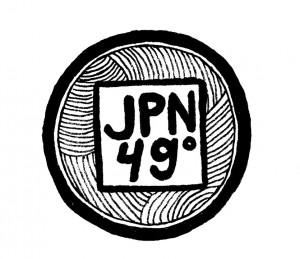
JPN49 is an effort to explore Powell Street and the history of the space more thoroughly: “To hear the neighbourhood spoken back” says Frost. Tasai has spawned multi-media collaborations — performance pieces in the style of traditional Japanese theatre, calligraphy, and interactive workshops for kids. Speaking to Tasai as a whole, the tendency, Steve tells me, is for Japanese poets to write a new poem for every event, specifically for the context of that event — a kind of site-specific practice. The shared context for the poetry reading is worth considering in that it speaks to a land-based history, acting as a reinscription, or indeed a translation in its own right.
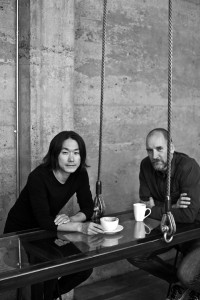
Despite a state apology and compensation package in 1988, it’s clear that there’s still work to be done in Vancouver. Frost notes the parallels between First Nations and Japanese Canadian experiences in the Downtown Eastside, where the effects of colonial violence are yet to be fully addressed. How can the communities we build and the cultural spaces we occupy reflect on this task? What kind of model can Frost and Takayama’s translations offer? With an enduring racist fixation on Asian homebuyers, and The Soldiers of Odin (a Nordic-style anti-immigration group) patrolling not far from the 200-400 block earlier this month, the concern seems pressing. “It’s a really critical time in Canadian history, where the offer of reconciliation is in front of us, and we need to do the hard work of taking it,” says Frost. “It’s not easy, the pieces don’t always fit snuggly.”
x
The first Japanese poet to participate in the JPN49 residency, Takiya Kuwahara, will arrive October 1 and will be participating in five JPN49 events, workshops and readings. More information at tasai.ca/jpn49.


